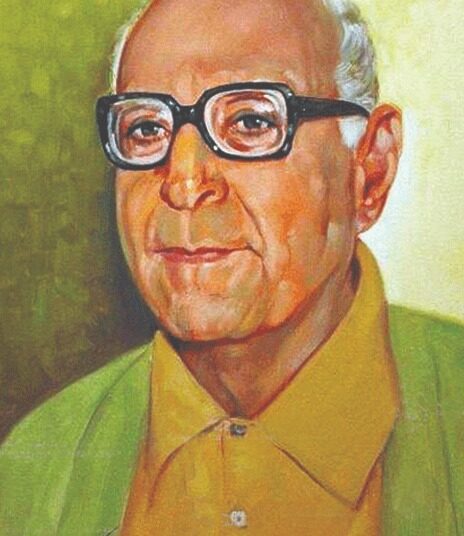He was born on February 2, 1905, in a village between al-Mansoura and Damietta. His father was a civil servant in the Sudanese government.
He moved to Cairo to attend Sultan Hussein School.
In 1914, his family moved to Khartoum and he was a student at Gordon Academy in January 1915 until he completed high school.
In 1936, he went to UK on a summer mission to work as an English teacher. On another mission to UK, he joined London University and obtained a first class honours degree philosophy in 1945. Two years later, he was awarded his PhD in philosophy.
He returned to Egypt to join philosophy department at Cairo University.
He was supervised Culture magazine from 1948 to 1951.
Afterwards he worked for the Ministry of National Guidance which was founded following the July 23 Revolution.
From 1953 to 1954, he was in US as visiting professor at the universities of Colombia and Washington. He was later appointed cultural counselor for the Egyptian Embassy in Washington.
From 1956 to 1965, he served on several committees that combined philosophy, literature and the arts.
Under the auspice of the Ministry of Culture, he founded Contemporary Intellect magazine, for which he was chief editor for four years.
In 1973, he was invited to join Al-Ahram newspaper, which afforded an opportunity to express his vision through his writings until 1990.
In 1985, he was awarded an honorary doctorate by the American University in Cairo.
He took part in several conferences in Arab and European countries and he was invited to lecture around the world many times.
He wrote articles for Politics Weekly and Culture magazines.
Purity and modernity are among the most important issues he dealt with. He visualised purity as the grassroots of homeland and modernity as broadmindedness.
Zaki affirmed that the nation could harmonise between both purity and modernity.
Among his published works are The History of Modern Philosophy (1935) co-written with Ahmed Amin, Art of Literature (1947), Positivism (1951), Revolution at the Gates (1956), Theory of Knowledge (1955) and Principles of Scientific Thought (1977).
Among his many awards are the 1939 Literary Award, the State Incentive Award for his book Towards Scientific Philosophy, and the Republic Award first class in 1975 in appreciation of Arab culture from the Arab League. He was the first Egyptian to receive this award.
He died on September 8, 1993. He was 88.






Discussion about this post